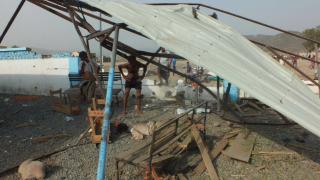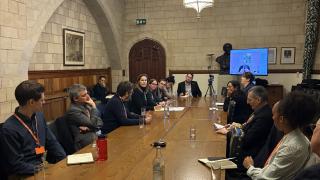
The UN World Food Programme has warned that conflict-ridden Yemen is “one step away from famine”, with close to 13 million people suffering food insecurity, including six million in urgent need of external assistance.
The humanitarian situation has been exacerbated by the Saudi-led bombing of Hodeida, a port which serves as a lifeline for imports of food and medicine. The attacks on Hodeida have been described by the UN’s Humanitarian Chief, Stephen O’Brien, as “unacceptable” and “in clear contravention of international humanitarian law”.
The UK continues to be one of Saudi Arabia’s largest suppliers of arms, having granted over £3bn of export licences to the country since it began its Yemen campaign in March 2015.
During this period, UNA-UK has repeatedly called for a suspension of arms exports to Saudi Arabia, given credible allegations of violations of international humanitarian law by all parties to the conflict, resulting in the deaths of over 4,000 civilians.
Last year, two parliamentary committees backed calls for licences to be suspended pending the outcome of an independent, UN-led inquiry, and a third committee stated that “the credibility of the Government’s policy and practice of its arm export licensing regime has been called into question”.
Pressure on the Government has grown this week as the High Court considers a judicial review brought by the Campaign Against the Arms Trade, arguing that the indiscriminate nature of airstrikes by Saudi Arabia means that there is a significant risk that UK weapons are being used to illegally kill civilians.
The judicial review constitutes a major test for the Arms Trade Treaty, which the UK ratified in 2014, and will set a precedent for other States Parties and signatories to the Treaty.
UNA-UK’s campaign, 'Keeping Britain Global', makes the case that if Britain wants to maintain its global influence it must champion global values and invest in the health of our international system. This requires refraining from any actions which could undermine the Arms Trade Treaty, and so damage the system of rules upon which so much of the UK's engagement with the rest of the world depends.
Image: Médecins Sans Frontières-supported facility in Hajjah, destroyed by Saudi-led coalition airstrikes, August 2016. Credit: Norwegian Refugee Council






